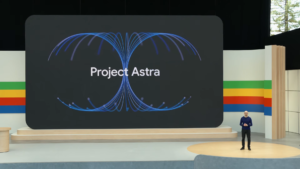Utilizing Generative AI in Video Game Development

The Evolution of Online Gaming
Over the past ten years, online gaming has fundamentally transformed how players engage with their favorite games. Gone are the days when players simply purchased and completed a game once. Now, many games are live and continuously updated, offering fresh content, new features, and vibrant communities. This constant evolution keeps players motivated and encourages them to return regularly.
What Are "Living Games"?
Today, the introduction of generative AI (gen AI) is pushing this evolution further, creating "living games." These games are capable of adapting and evolving based on how players interact with them. Imagine a game that learns your playing style and modifies its environment, characters, and storylines to suit you. Think of building vast worlds or customizing game elements by merely describing what you envision, or enjoying conversations with virtual characters that feel as real as chatting with another player. This is the potential of generative AI in the gaming realm.
How Gen AI is Transforming Game Development
Tailored Experiences for Players
For games to remain engaging, they must continuously evolve. Developers analyze player data to make informed decisions on updates and new features. While AI has already played a role in helping studios sift through data for trends, the lengthy development cycles often meant updates lagged behind player requests and changing behaviors.
Generative AI changes this narrative by speeding up content creation, allowing developers to produce new ideas, concept art, dialogues, and more at a much faster rate. As development costs rise, AI offers a solution by allowing studios to focus on the most creative and engaging aspects of game design, rather than getting bogged down by routine tasks.
With gen AI, developers can move from generic, "one-size-fits-all" gameplay to crafting personalized adventures. Instead of players experiencing the same storylines and events, games can now generate new content dynamically as you play.
Active Participation in Game Design
These advancements empower not only developers and players but also the games themselves to facilitate ongoing improvements. Players become part of the ongoing development process, driving changes through their interactions.
Google Cloud: A Catalyst for Living Games
Google Cloud is advancing the future of gaming by providing developers with the tools needed to create these living games. By offering infrastructure and advanced AI technology like the Gemini models and Vertex AI, Google Cloud equips developers with powerful resources. Additionally, its partner ecosystem connects game developers with tools, engines, and platforms essential for innovative game development.
How Google Cloud is Empowering Developers
Here are some examples of how Google Cloud is helping realize the concept of living games:
Capcom: Known for franchises like Street Fighter and Resident Evil, Capcom uses Vertex AI and Gemini to generate a myriad of ideas for game development. This technology allows them to quickly iterate on game concepts while managing large data sets efficiently—leading to reduced costs and faster game creation.
Klang Games: The studio behind the MMO game SEED employs Google Cloud to foster its evolving virtual world. Using Google Kubernetes Engine (GKE) and AI models, they are bringing to life hundreds of thousands of unique virtual characters. These characters interact naturally with players, forming relationships and shaping dynamic societies.
Series Entertainment: This fast-growing startup leverages Google Cloud’s AI to streamline game production, reducing development time by an astonishing 90%. This swift process enables opportunities for players to experience AI-driven characters and environments that are rapidly updated.
ElevenLabs: Focusing on AI audio, ElevenLabs benefits from Google Cloud’s infrastructure to offer realistic character voices and sound effects, enhancing the immersive quality of games.
nunu.AI: Aiming to transform quality assurance in gaming, nunu.AI uses Google’s Gemini models to develop AI agents that automate testing, enabling continuous quality assurance throughout the game development lifecycle.
- Common Sense Machines (CSM.ai): Specializing in 3D generative AI, CSM.ai assists game artists in creating immersive environments quickly. This technology allows for the rapid generation of game-ready 3D assets based on simple text descriptions.
With these collaborations, Google Cloud plays a significant role in shaping the future of the gaming industry. For developers looking to elevate their player experiences, Google Cloud offers a suite of resources tailored for game development.






